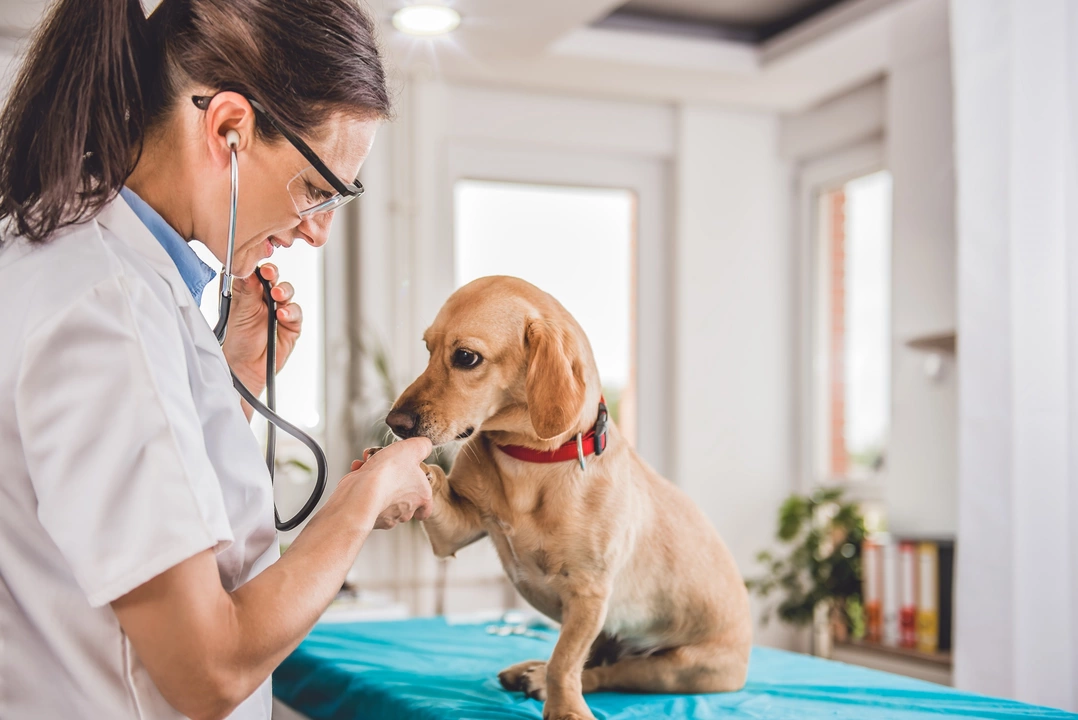Albuterol for Cats and Dogs: Can it Help Your Pet?
 May, 19 2023
May, 19 2023
Understanding Albuterol and Its Uses
As a pet owner, it's always helpful to be aware of the various medications that can potentially help our furry friends. One such medication is Albuterol, a bronchodilator that's commonly used to treat respiratory issues in humans. Albuterol has also been found to be helpful for cats and dogs that suffer from similar respiratory problems. In this section, we will discuss what Albuterol is, how it works, and the various conditions it can be used to treat in our pets.
Albuterol is a type of medication called a beta-2 agonist, which works by relaxing and opening up the airways in the lungs. This allows for better airflow and makes it easier for the animal to breathe. In cats and dogs, Albuterol is often prescribed for conditions such as asthma, bronchitis, and other chronic respiratory disorders. It can be administered in different forms, including oral tablets, syrup, or even in an inhaler form specifically designed for pets.
Administering Albuterol to Your Pet
Administering Albuterol to your pet must be done under the guidance and supervision of a veterinarian. It's crucial to follow the prescribed dosage, as an overdose can lead to severe side effects or even death. The specific dosage and form of Albuterol that your veterinarian prescribes will depend on factors such as your pet's size, weight, and the severity of their respiratory condition.
When giving your pet Albuterol, make sure to follow the vet's instructions carefully. If your pet is using an inhaler, it's essential to hold the device correctly and ensure that the animal inhales the medication properly. Proper technique and timing are crucial for the medication to be effective. If you have any questions or concerns about administering Albuterol to your pet, don't hesitate to consult your veterinarian for guidance.
Potential Side Effects of Albuterol
As with any medication, Albuterol can cause side effects in some animals. Common side effects include increased heart rate, tremors, and restlessness. In most cases, these side effects are mild and do not pose a significant risk to your pet's health. However, if your pet experiences more severe side effects, such as vomiting, diarrhea, or difficulty breathing, it's essential to contact your veterinarian immediately.
It's important to monitor your pet closely for any potential side effects, especially during the first few days of treatment. If you notice any sudden changes in your pet's behavior or health, consult your veterinarian to determine if adjustments need to be made to the dosage or treatment plan.
Drug Interactions and Precautions
Before starting your pet on Albuterol, it's important to discuss any other medications or supplements they're currently taking with your veterinarian. Some medications can interact with Albuterol, leading to potentially dangerous side effects or reduced effectiveness. For example, beta-blockers and certain diuretics may not be compatible with Albuterol treatment.
Additionally, there are certain conditions in which Albuterol may not be recommended for your pet. Animals with heart disease, high blood pressure, or seizures may need alternative treatments or special precautions when using Albuterol. Always consult your veterinarian before starting any new medication for your pet, and make sure they're aware of your pet's full medical history.
Monitoring Your Pet's Progress
It's important to closely monitor your pet's progress during Albuterol treatment. This includes observing their breathing, energy levels, and overall health. If you notice any improvements or worsening of symptoms, it's important to report these changes to your veterinarian. They may need to adjust the dosage or explore alternative treatments if Albuterol isn't providing the desired results.
Regular follow-up appointments with your veterinarian are also essential to ensure that your pet is responding well to the treatment and to monitor for any potential side effects. Your veterinarian may also recommend additional tests or imaging to assess your pet's lung function and overall health.
Managing Respiratory Issues in Pets
While Albuterol can be an effective treatment for respiratory issues in cats and dogs, it's essential to remember that it's not a cure-all. Managing your pet's respiratory condition may also involve additional treatments and preventative measures. This can include providing a clean and allergen-free environment, using air purifiers or humidifiers, and implementing a healthy diet and exercise routine.
By working closely with your veterinarian and following their recommendations, you can help your pet live a more comfortable and healthy life, even with a respiratory condition.
Final Thoughts
Albuterol can be a helpful treatment option for cats and dogs with respiratory issues such as asthma or bronchitis. By understanding how this medication works, its potential side effects, and the importance of proper administration, you can help your pet breathe easier and enjoy a better quality of life. Always consult with your veterinarian before starting your pet on any new medication, and follow their guidance closely to ensure the best possible outcome for your furry friend.

j jon
May 20, 2023 AT 12:57Jules Tompkins
May 21, 2023 AT 04:54Sabrina Bergas
May 21, 2023 AT 15:57Melvin Thoede
May 22, 2023 AT 12:48Suzanne Lucas
May 22, 2023 AT 13:57Ash Damle
May 22, 2023 AT 16:23Kevin Ouellette
May 22, 2023 AT 22:01Tanya Willey
May 23, 2023 AT 19:32sarat babu
May 24, 2023 AT 12:20Richard H. Martin
May 25, 2023 AT 00:47Tim H
May 25, 2023 AT 12:05Umesh Sukhwani
May 25, 2023 AT 19:37Vishnupriya Srivastava
May 25, 2023 AT 20:00